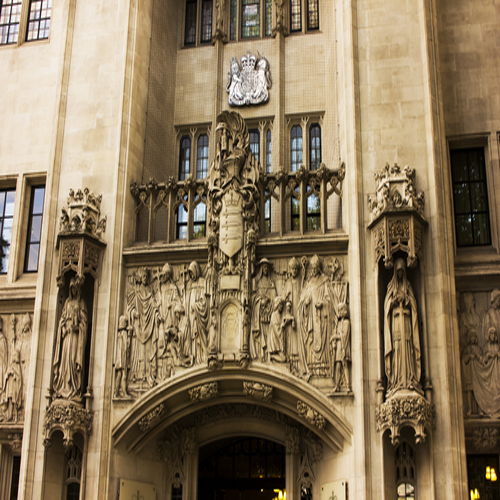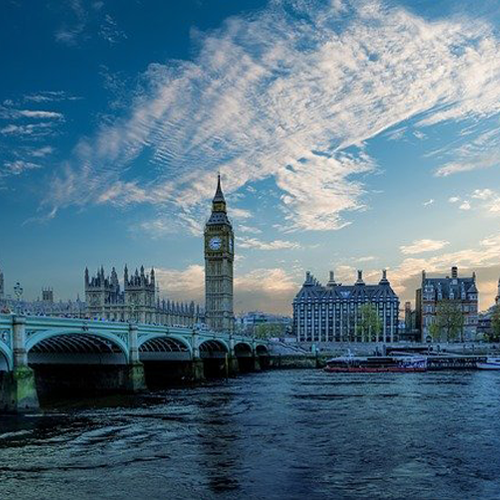
A crucial endorsement from the UK’s human rights watchdog now means that care home workers are required to get vaccinated against Covid-19.Vaccinations may soon be mandatory in professions that come into regular close contact with vulnerable and elderly people at high risk from coronavirus. This is a decision being considered by Ministers as a further step to protect front line care workers. A recent report to the government revealed the Equality and Human Rights Commission (EHRC) recognised that compulsory vaccines for care home staff would be a “significant departure from current public health policy”.The EHRC is likely to propose a similar recommendation about healthcare workers, after the vaccines minister, Nadhim Zahawi, advised that NHS staff could face compulsory jabs too, as some patients were “being infected in hospital”.There is an apprehension in Whitehall about forcing anyone to have a Covid-19 injection, given the fear that this could make people who are already hesitant even more resistant to take up the vaccine.The EHRC pointed out that some demographic groups that were less likely to get vaccinated were “disproportionately represented in the adult social care sector workforce”. They said the mandatory vaccination could further risk excluding these groups “from access to employment”, therefore a proportionate approach with safeguards would be required.A parallel concern was raised in a study by the London School of Hygiene and Tropical Medicine that found care workers who felt under pressure to get a vaccine from their employers were consequently more likely to decline it.To confront undue discrimination, the EHRC has advised that people who can not get injections for medical reasons should be exempted, and that no one should “face any financial detriment” because of having the vaccine.It was additionally raised by the EHRC that statutory sick pay (capped at £96.35 a week) may be “deterring workers from being vaccinated because they cannot afford to take sick leave if they have side-effects”. Further adding that with a quarter of the social care workforce on zero-hours contracts, many might not even be entitled for the state financial support.Labour has commented “threatening” people over vaccination is “not a good idea”. The shadow Commons leader, Thangam Debbonaire, said: “Given we have got a recruitment crisis in parts of the NHS I think it’s far more important we try and work with staff rather than against them.”Learn more about your rights from both the employer and employee perspectives.

The UK spy agency GCHQ have breached the right to privacy. This comes as their methods for bulk interception of online communications, and their practice for collecting data was ruled unlawful by the grand chamber of the European court of human rights. The judges found the bulk interception regime violated the right of freedom and expression, and comprised inadequate protections for confidential journalistic records. The legal challenge to GCHQ’s interception of online communication began in 2013 by Big Brother Watch and other following Edward Snowden’s whistleblowing revelations regarding the interception, processing and storing of people’s private communications. The case was later replaced by the Investigatory Powers Act (IPA) in 2016. The ruling confirmed there were three “fundamental deficiencies” in the regime. These included the authorisation of bulk interception by the secretary of state of opposed to a body independent of the executive; search terms defining the communications not having been included in the application for a warrant; and that search terms linked to an individual had not been subject to prior internal consent.The chamber concluded that the decision to perform a bulk interception regime did not of itself violate the European convention on human rights, and that the GCHQ’s regime for sharing sensitive digital intelligence with foreign governments was not illegal.Its judgment claimed: “In order to minimise the risk of the bulk interception power being abused, the court considers that the process must be subject to ‘end-to-end safeguards’, meaning that, at the domestic level, an assessment should be made at each stage of the process”. Liberty’s lawyer Megan Goulding stated: “Bulk surveillance powers allow the state to collect data that can reveal a huge amount about any one of us – these mass surveillance powers do not make us safer”Acting legal director at Privacy International Ilia Siatitsa said it was “an important win for privacy and freedom for everyone in the UK and beyond”, but added: “It is not the end.”

After a legal battle by campaigners, EU citizens have won full access to records about them held by the Home Office.A previous high court decision that ruled their case had no legal merit has been unanimously overturned by three judges at the court of appeal. This ruling brings to a close a three year battle by campaign groups the 3million and the Open Rights Group. EU citizens who were previously denied settled status or future immigration visas will now be granted full access to Home Office databases, enabling them to access records used against them including entry to the country records, criminal and civil offence records, or social benefits.It was ruled by the lord justices Underhill, Singh and Warby that the exemption to immigration in the DPA was “non-compliant” with the General Data Protection Regulation and the charter of fundamental rights of the EU.The Open Rights Group and the 3million failed to overturn the immigration exemption in the DPA in a judicial review in 2018. The campaigners argued that this had diminished their legal right to dispute the Home Office decisions.It was argued by the Home Office that the exemption was necessary. The law proposed that an EU citizen wishing to testify a ruling to decline settled status or future leave to remain in the UK was handicapped, because access to the records used against them was not permitted.The case consequently raised questions about the discreet decision-making processes in the Home Office, with a “prejudice test” being used by case workers for the “maintenance of effective immigration control”.The Home Office’s consideration that immigration control policies “outweighed the benefits of the individual exercising their data subject rights” was rejected by the judgment. Open Rights Group’s immigration policy manager Sahdya Darr, stated that the judges had “recognised that the immigration exemption drives a huge hole through data protection law”.In order to establish what solutions are required, the judges have ruled that further legal argument must follow.Find out more and read about immigration law in detail.

An announcement by the Supreme court details an initiative to increase diversity in the judiciary by introducing paid internships for budding lawyers from underrepresented communities. In collaboration with the charity Bridging the Bar, the scheme comes at a time in which the supreme court, judiciary and legal profession face scrutiny over inclusivity.Current diversity is evidently limited with all 12 supreme court justices being white and only two being women. As of 1st April, throughout the judiciary in England and Wales there is an 8% proportion of black, Asian and minority ethnic (BAME) court judges. In senior positions, the proportion is just 4%. The respective figures for women were 32% and 26%. As claimed by the 2011 census, 14% of the population were BAME and 51% were female.The upcoming programme will offer a five day placement to eight Bridging the Bar candidates who have accepted or completed the bar professional training course.Chief executive of the UK supreme court Vicky Fox stated: “The court recognises that it has a leadership role to play to support increasing diversity of the judiciary and it is our intention that this programme will support the progression of underrepresented groups into the legal profession and ultimately into judicial roles.”Over the course of the week, each intern will be allocated to a judicial assistant and will observe cases, debate legal arguments with justices and obtain insights and guidance.The announcement for this scheme came as the supreme court published its judicial diversity and inclusion policy, which intends to support the advancement of underrepresented groups into judicial roles and achieve an inclusive environment for justices.

Prohibiting street harassment, banning rent in exchange for sexual favours, and making misogyny a hate crime, are among a list of new offences that Labour have proposed. The opposition party are focusing highly on violence and abuse against women and girls in a new green paper around the issue. The publication aims to highlight what it believes to be gross inadequacies in the police, crime, sentencing and courts bill, as well as the Queen’s speech.Shadow domestic violence and safeguarding minister Jess Philips claimed that regardless of the government insisting that violence specifically targeted at women and girls is a rare crime, it is in fact “endemic” and that “the figures tell a different story”. The party also hope to remove barriers to legal aid for victims of domestic violence, including to refugees and migrants with no recourse to public funds. Focusing not just on physical crimes, but also digital ones, the green paper also targets social media and internet offences. The document posits the need for criminal sanctions for tech executives who do not act quickly or decisively enough to remove sexist or misogynistic abuse from their platforms.As well as introducing new offences, proposals also include increasing and toughening sentences for rape, domestic murder, and stalking; the minimum tariff for rape would be seven years under Labour proposals. Opposition ministers further highlight the need to hold the government to account on the issue with specific benchmarks and targets to measure progress being made on male violence, domestic abuse, and sexual violence. They cite the system currently used in Wales, where ten national indicators of progress made against violence against women and girls can be used to measure government effectiveness. Labour believe this system should be rolled out nationally. Changes need to be made on a ministerial level in order to effectively carry out these proposals, so Labour have also called for the creation of a specific ministerial position with oversight of the safety of survivors of sexual assault. This would involve the Ministry of Justice, the attorney general’s office, public health departments, and the Home Office.

A prominent human rights lawyer has raised concerns that lawmaking during the Covid-19 pandemic has put usual parliamentary procedure aside and given a huge amount of control to a small group of ministers. He claims this has been done without proper scrutiny and is making the lawmaking process as a whole “anti-democratic”. MPs are being urged to “take back control” of laws in this country after a period which has set a dangerous precedent. While regulations are beginning to lift, the last year has raised several questions about the centralisation of judicial power with a handful of ministers. Adam Wagner, the lawyer in question who has been a keen chronicler of new and updated laws and regulations across the pandemic, has described laws as being passed “by the swish of a minister’s pen”. The increased output of new laws regarding the pandemic has led not only to an erosion to the democratic process, but also to uncertainty and confusion surrounding the current state of play. According to Wagner, the guidance, rules, and laws around Covid-19 change around once per week. For him, this trigger happy approach has led to people not being sure of what they can and can’t do; in a recent survey, even nine out of ten police officers thought the rules were unclear. The policy of “hotel quarantine” drew particular ire from Mr Wagner, who described it as “hotel detention”, likening the policy making process around it to “the wild west”, with a “fully unscrutinised detention of ordinary people who have committed no crime”. The hotel quarantine policy has led to over 85,000 fixed penalty notices at time of writing and was pushed through via secondary legislation. This is where ministers can pass legislation without parliamentary debate or approval. A damning light has also been shone at the controversial policing bill, granting powers to the Home Office to define what amounts to “serious disruption” from protestors and gives more autonomy to police with how they are dealt. The banning and aggressive dealing of the vigil for Sarah Everard, despite it being protected by the Human Rights Act, highlights for Wagner the concerning disregard for primary legislation in recent years.

A retired former army officer is leading a group of around 30 ex-service personnel in their legal action over allegations of war crimes. The veterans have begun proceedings against the Ministry of Defence and the lawyers who led claims of misconduct in warzones against them. Major Robert Campbell, the man leading the group, was accused of drowning an Iraqi man in Basra in 2003. However, the charges were dismissed after a judge claimed that the accusations were based on lies and collusion. He was discharged in 2018 and is unable to work due to suffering from post-traumatic stress disorder from his operational service and the legal trauma he suffered after the allegations. He claims that the MoD essentially abandoned its service personnel and needlessly exposed them to legal uncertainty and vulnerability for years, despite two key witnesses in his case being exposed as liars as far back as 2006.Campbell’s case is against the MoD and the indemnity insurers of the legal firm that he fought against; that company collapsed with the solicitor being struck off for dishonesty in relation to the public inquiry examining the claims used in the case. The firm representing Mr Campbell and other veterans described the historic pursuit of frivolous allegations of war crimes as a “witch hunt based on deceit” and accused the MoD of breaching its duty of care owed to service personnel and veterans. Mr Campbell and his representatives have said that letters of claims are being sent in the coming weeks and have started a crowdfunding campaign to raise £10,000 to cover court costs.

Manak Solicitors would like to convey the following important message from the UK Government regarding the EU Settlement Scheme:On Tuesday 11 May, there will be only 50 days to go until the deadline of 30 June 2021 for applications to be made to the EU Settlement Scheme (EUSS).The 50 day milestone is an important opportunity for us to work together to bring the fast-approaching deadline to the attention of your eligible EU employees.All EU, EEA and Swiss citizens and their family members who were resident in the UK by 31 December 2020, should apply without delay so that they can continue to work, study, and access free healthcare and benefits in the UK after 30 June 2021.As an employer it is not your responsibility to make sure your EU employees have applied, but you can play a role by reminding them of the approaching deadline and cascading the information in the employer toolkit available on GOV.UK.You will not need to carry out retrospective Right to Work Checks on existing employees after the 30 June 2021 deadline. However, from 1 July, new EU, EEA and Swiss employees that you hire will need to demonstrate their right to work either with the pre-settled or settled status, or with a visa under the points-based immigration system.We have an accredited Immigration department ready and able to assist you with EUSS.

Following the announcements made in the recent Queen’s speech, the government has confirmed that legislation is incoming to increase the judicial retirement age to 75.This is an increase from 70 and means that magistrates will be able to continue serving for another five years if there is a need for them to do so. A change like this is no small decision and requires primary legislation; the government have said that this will be passed “as soon as time allows”.The government published a response to a consultation on the compulsory retirement age in March and considered formally reforming the Judicial Pensions and Retirement Age 1993, which required judges to stop serving at 70 except in specific circumstances. The consultation received over 1000 responses with the vast majority reportedly supporting proposals for reform to increase the compulsory retirement age. The Ministry of Justice has stated that it acknowledges that working life patterns have changed over the last few decades and that people are working later into life. They have stated that they do not want to lose valuable members of the judiciary when they are able and willing to continue working, which has driven these reforms. Ministers will make provision for these changes through the Public Service Pensions and Judicial Offices Bill by reforming judicial pension arrangements. Measures are in place in order to keep the judiciary running to a point where it can keep up with demands of the justice system with retirement and recruitment provisions. While details haven’t been shared yet, the bill will transfer members of the judiciary into a new pension scheme reflecting their unique circumstances. Visit our employment law page and learn more about the services we offer.


 Quote
Quote




